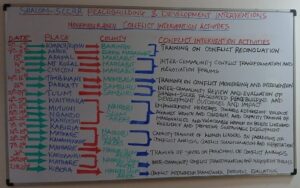‘‘First of all, I am grateful to God for this opportunity to be part of this course, secondly, I am thankful to Shalom Center for Conflict Resolution and Reconciliation (SCCRR) for bringing us the knowledge that there are alternate ways of resolving conflicts and how to do it”. Sr. Nomi Slamit (a student from Pakistan)
Shalom-SCCRR’s academic course on Conflict Resolution and Reconciliation delivered at Tangaza University College in Nairobi has been a life changing experience for students from many parts of the world. The course extensively addresses paramount conflict issues in our modern-day societies. Despite the global Covid-19 pandemic, students from Africa, Central America and Asia enrolled for the conflict resolution and reconciliation Course, January – May 2021 semester.
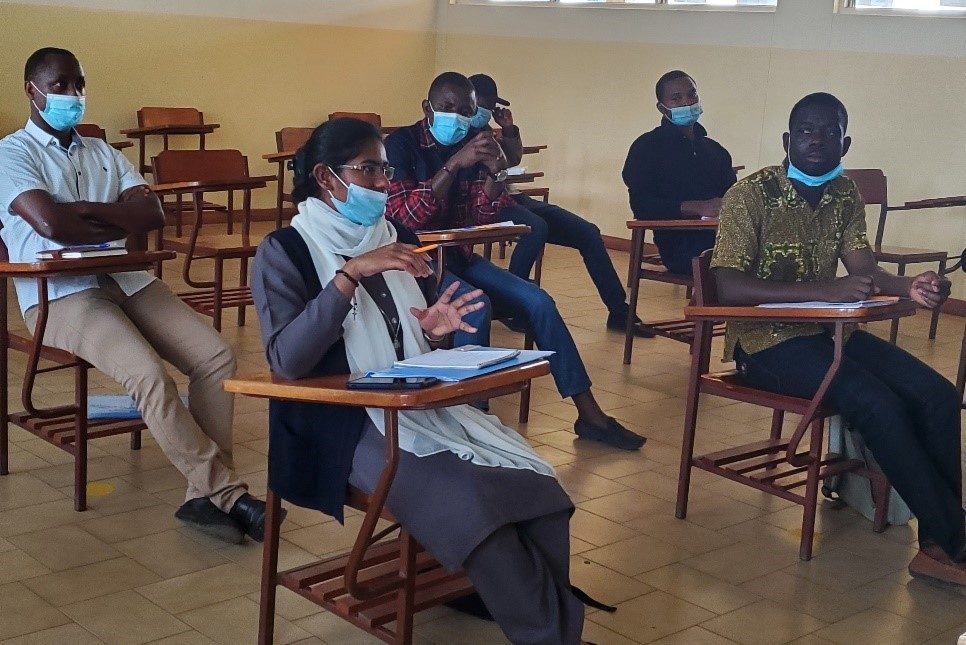
Nomi went on to say,”one of the interesting things about this class was that the students were from ten countries. It was really an enriching experience to listen about the problems and challenges these countries face in respect to conflict transformation. We realized how much our countries are facing structural violence and negative peace, and how much our people are torn apart because of injustice, poverty and cultural dimensions.
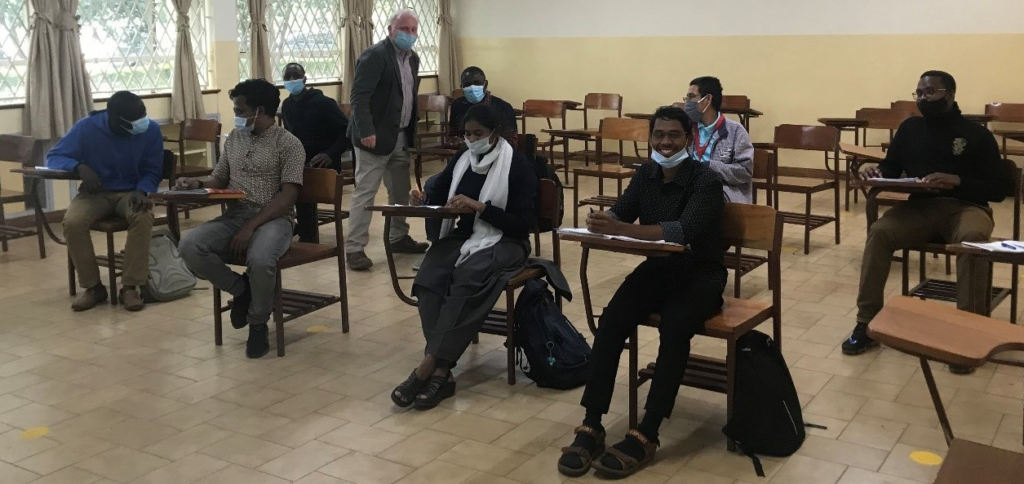
We also analysed about the positive and negative roles of women in conflict, conflict resolution and peacebuilding: women can be victims or perpetrators. As a woman in the class I was challenged to reflect on my own role in peacebuilding and how much more I need to do, to actualize my own potential in conflict analysis, management and reconciliation in order to bring about peace within myself, in my community and throughout society at large.’’
In expressing his gratitude for the course Stanley Wehere stated that: ‘’I now feel more challenged to pursue conflict transformation and peacebuilding at the levels of personal, relational, structural and cultural’’ He noted that ‘‘globally nations have to deal with many challenges that threaten their human and state security and as such there is great need in communities to be equipped with knowledge and analytical skills on how to transform these conflicts from manifest violent conflict to realizing positive peace.’’ (For true positive peace to exist, there must be not only the mere absence of manifest violence (negative peace), the former conflicting parties must be committed to ensuring the security and development and overall well-being of each other).
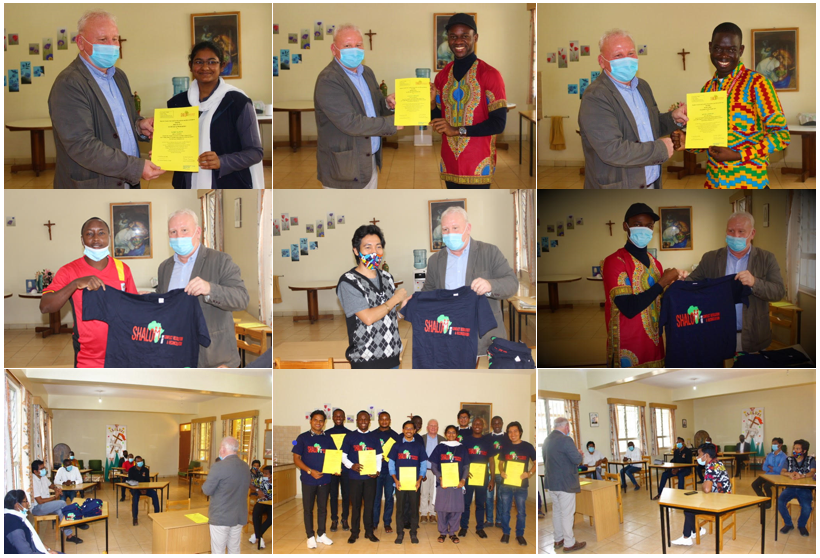
The course is oriented towards transforming the minds of the students and peace practitioners by equipping them with analytical skills and peacebuilding techniques essential for conflict transformation and reconciliation in profoundly divided societies. This extensive course meticulously addressed the modules of Paradigms of Conflict Analysis, Conflict Transformation and Reconciliation, Marginalization and Development, Governance and State Responsibilities, Religion and Conflict, Radicalization and Extremism, Women and Conflict, Extractive Industries and Conflict, Theory of Conflict Cycle; Actors, Issues and Management Processes.
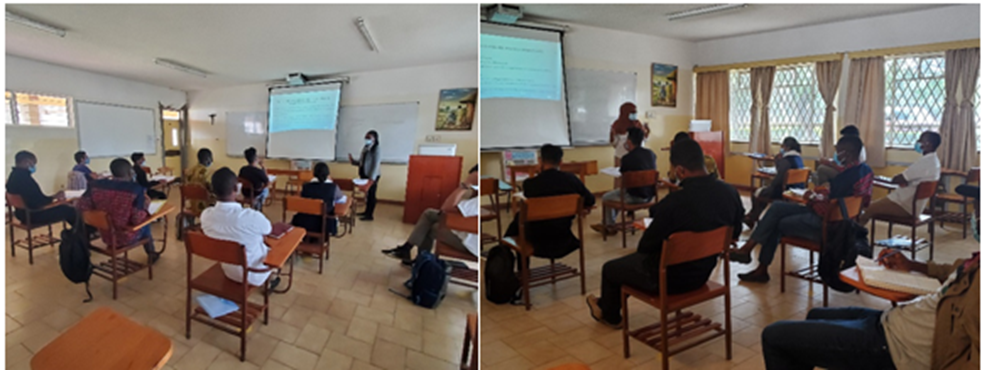
The students appreciated the input and insights during the course led by Fr. Oliver Noonan MA assisted by Fr. Patrick Devine PhD, Asha Awed MA, Esther Kibe MA, and Paulson Erot MA. Hilario Villaver Jr. in offering his gratitude said that ”the course for me was not a mere subject but an important lesson for life, and with this broadened knowledge on conflict and peace I am motivated to work for the actualization of positive peace among communities.’’
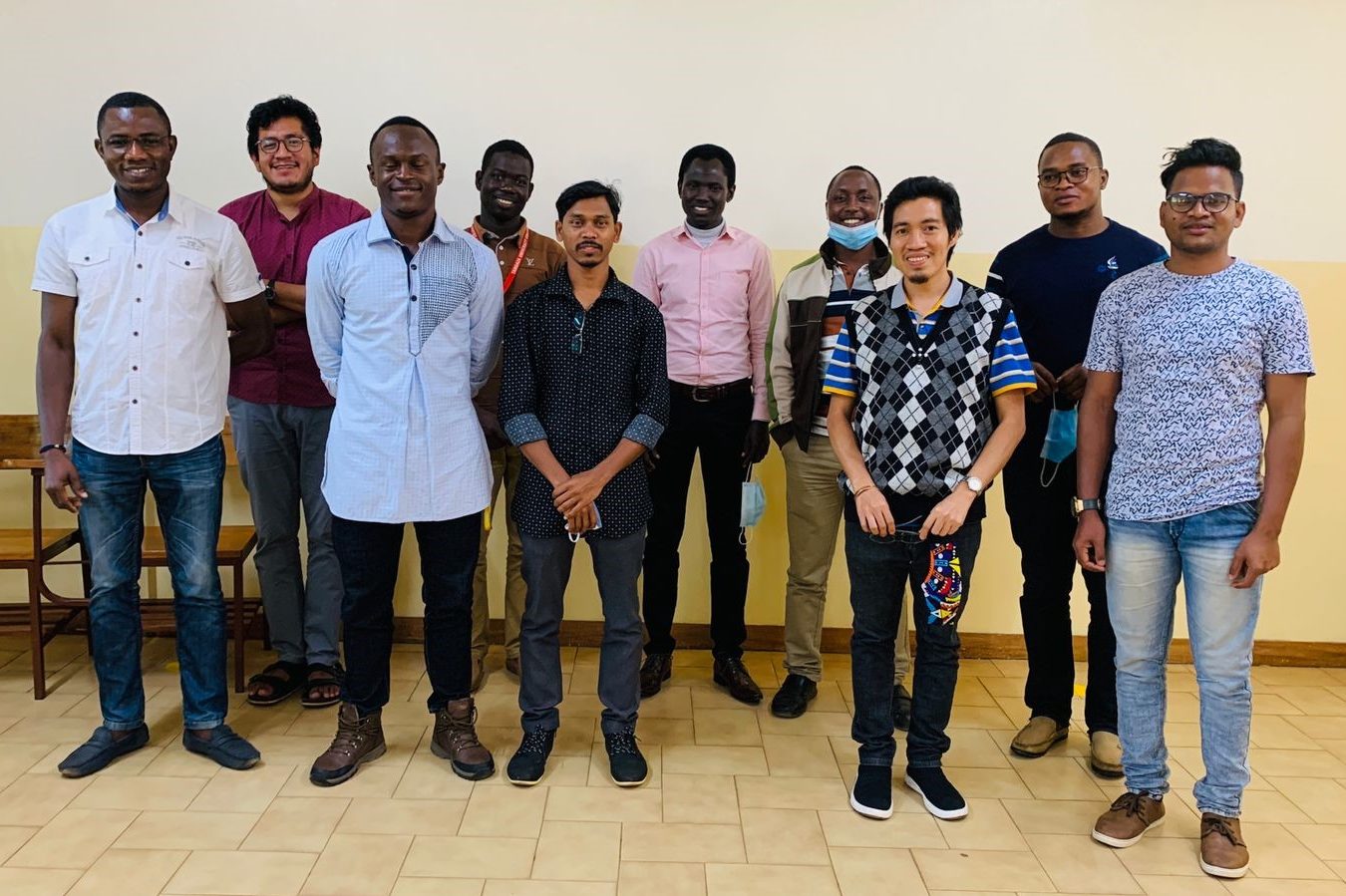
Yiga Antony acknowledged that, ‘‘the great importance and asset to theology students, whose mandate is to spread values of peace, truth, justice and mercy on earth to all people, is knowing a methodology; having this knowledge in Peacebuilding and Conflict Resolution cannot be emphasized enough.’’ His sentiments resonating with aspects of the course’s rationale ‘‘For communities in African conflict environments, where people are killed, maimed and displaced persistently, it is extremely difficult, if at all possible, for social and religious ideals such as peace, truth, justice and mercy (gospel values) to take deep root; people cannot live normal communal lives or experience positive peace. It is also practically impossible to have any sustainable development in such conflict environments as institutions of learning, medicine and formation get either destroyed or become inoperable’’.
Ngwemba Bertrand pointed out that the course provided him with an opportunity to understand the terrible consequences of structural violence in society and if not well addressed can easily escalate into manifest violence. He also stated that ‘‘there is need for nations to address inter-ethnic/inter-religious/inter-communal conflicts in their countries for sustainable peace and development to be achieved.’’ This underpins the former United Nations Secretary General Koffi Annan perspective that, “You cannot have peace without security and you cannot have security without inclusive development.’’
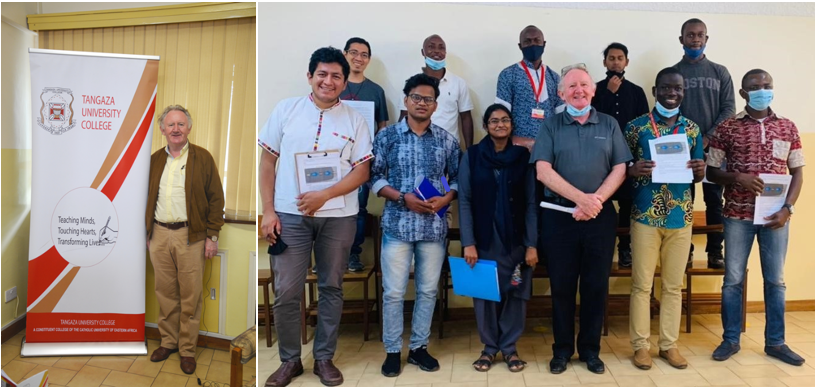
Our sincere appreciation to the Tangaza University College Administration. It is our hope that the students who participated in the course will be conflict transformation agents of change in their societies and nations. Shalom will continue partnering and collaborating with inter-religious institutions and regional/international universities to share our conflict transformation-peacebuilding strategy and methodologies. This intervention is essential if we aim to inspire future generations of quality peacebuilders.
The Shalom team continues to work tirelessly for a society free of physical violence and unjust social structures in Africa, building peaceful and reconciled communities. Through our peacebuilding, actualizing interreligious dialogue and praxis, and integral human development interventions, a society where peace, social justice and reconciliation will ultimately prevail.
By:
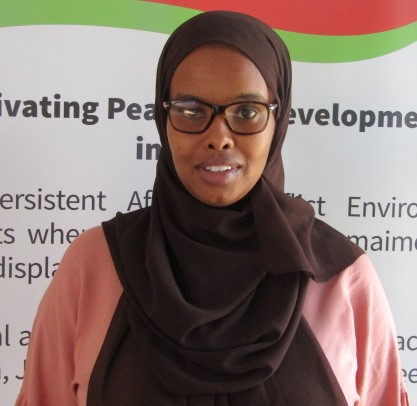
Asha Said Awed, MA
Program Assistant (Nairobi, Marsabit & Turkana-West Pokot Projects)
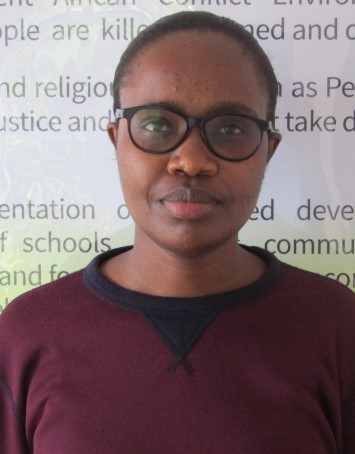
Esther Njeri Kibe, MA
Program Officer (Marsabit & Turkana-West Pokot Projects)

